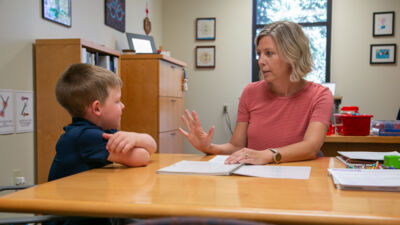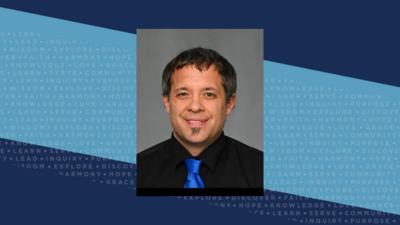Understanding Special Education: A Focus on Autism

Special education is a branch of education designed to meet the unique needs of students with disabilities. Within this field, autism spectrum disorder has garnered significant attention due to a growing number of diagnoses and the distinct educational challenges it can present. Teachers who pursue a Master of Special Education are equipped with the skills and knowledge to support these students, ensuring that they receive a quality education tailored to their specific individual needs.
Understanding Autism in the Educational Context
Autism spectrum disorder is a developmental disorder characterized by challenges with social interaction, communication and repetitive behaviors. The spectrum nature of the disorder means that it affects individuals differently, with some students exhibiting mild symptoms while others face more severe challenges.
In the classroom, students with autism may struggle with understanding social cues, managing sensory input or communicating their needs effectively. These challenges require educators to employ specialized teaching methods that cater to each student’s unique needs. The role of special education teachers, particularly those with a focus on autism, is to create an inclusive, forward-thinking learning environment that fosters both academic and social development.
The Role of Special Education Teachers
Special education teachers are at the forefront of supporting students with autism. They are responsible for developing individualized education programs (IEPs), which are tailored plans that outline specific goals and the support needed for each student to achieve them. The IEP process involves collaboration with parents, therapists and other educators to ensure a comprehensive approach to the student’s education.
Teachers trained in special education use a variety of strategies to support students with autism, including:
Structured teaching: This approach provides a clear, predictable routine that helps students with autism feel secure. Visual schedules, organized workspaces and consistent routines are key elements of structured teaching.
Behavioral interventions: Many students with autism exhibit behaviors that can be challenging in a classroom setting. Special education teachers use positive behavioral interventions and supports (PBIS) to encourage desired behaviors and reduce disruptive ones. This often involves reinforcement strategies, such as praise or rewards for positive behavior.
Communication supports: Given the communication challenges faced by many students with autism, special education teachers often use alternative and augmentative communication tools. These can include picture exchange communication systems, speech-generating devices and sign language.
Social skills training: Social interactions can be particularly challenging for students with autism. Special education teachers use social stories, role-playing and other techniques to teach appropriate social behaviors and help students develop the skills needed to interact with their peers.
Sensory supports: Many students with autism have sensory processing difficulties, which can make certain classroom environments overwhelming. Special education teachers are trained to identify sensory triggers and provide accommodations, such as noise-canceling headphones or sensory breaks, to help students manage their sensory needs.
The Importance of Early Intervention
Early intervention is crucial for students with autism. Research has shown that the earlier children with autism receive specialized support, the better their outcomes in terms of communication, social skills and academic achievement. Special education teachers play a key role in identifying early signs of autism and providing the necessary interventions, helping young children with autism build a strong foundation for future learning.
The Impact of a Master’s Degree in Special Education
Pursuing a Master of Special Education degree is an important step for educators who want to specialize in teaching students with autism. This advanced degree provides teachers with a deeper understanding of the complexities of students with a variety of needs and the most effective strategies for supporting them.
Graduate programs in special education typically cover a range of topics, including:
Assessment and diagnosis of autism and other disabilities.
Standardized assessment tools and interpreting results to inform instruction.
Addressing challenging behaviors and promoting positive outcomes for students with autism.
Creating inclusive classroom environments where students with autism can learn alongside their peers.
Collaboration with a multidisciplinary team, including speech therapists, occupational therapists and psychologists.
Concordia University, Nebraska’s Master of Education in Special Education
Special education, particularly in the context of autism, requires a deep understanding of each student’s unique challenges and strengths. Teachers who pursue a Master of Special Education are better equipped to provide the individualized support that students with autism need to thrive. With the right training and a commitment to inclusive education, special education teachers can make a lasting difference in the lives of their students.
Concordia University, Nebraska offers a comprehensive Master of Education in Special Education program designed to prepare educators for the challenges of teaching students with disabilities, including those with autism. The program is grounded in a commitment to Christian values, emphasizing the importance of compassionate, inclusive and culturally responsive service.
Whether they are working in public schools, private institutions or specialized programs, graduates of Concordia’s M.Ed. in Special Education program are well-prepared to meet the diverse needs of their students and help them achieve their full potential.
Students in Concordia’s M.Ed. programs learn from experienced faculty who are experts in special education. The programs also offer practical experiences, allowing students to apply their knowledge in real-world settings, which makes them well-equipped to have a meaningful impact in the lives of students right away.
Interested in special education at Concordia?
Related Stories


